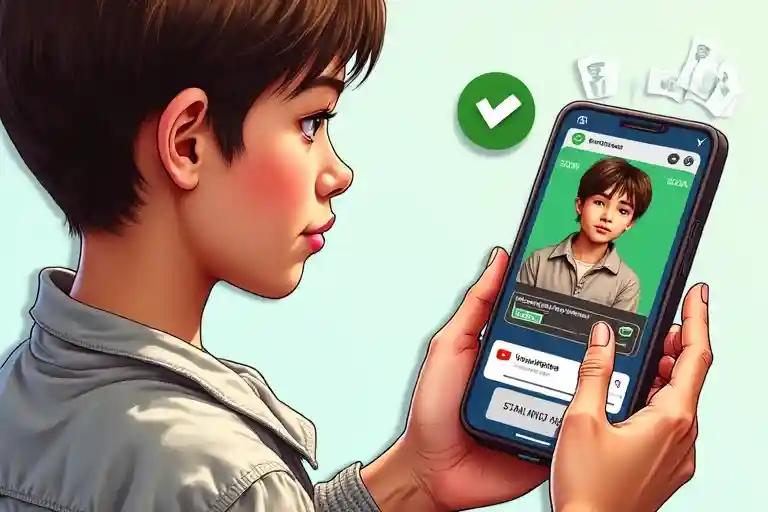Alright, let’s get real. You’ve probably scrolled past a million videos or posts talking about easy ways to make money online. Maybe you’ve even seen a TikTok about someone supposedly raking it in just by clicking a mouse. And that brings us to the big question: what’s the deal with paid per click sites? Can you *actually* make money, or is it all just hype? I was super curious myself! So, I decided to dive deep into the world of paid per click sites to get you the ACTUAL tea. We’re going to break down how they work, what’s legit, what’s totally sus, and whether they’re a good fit for you, especially if you’re a teen looking to stack some extra cash. We’ll cover everything from how these sites *claim* you can make money online, to identifying the best (and safest!) ones, and even peek into what “highest paying” really means in this universe. Plus, we’ll chat about staying safe – because nobody has time for scams – and figure out if clicking ads is truly worth your precious screen time. Ready to become a paid per click sites pro? Let’s go! Last updated: May 2025.
Pay per click sites make money online: How’s it REALLY Work?
So, you’re wondering how exactly paid per click sites (often called PTC sites) supposedly help you make money online. Think about it: advertisers need eyeballs on their commercials, right? These advertisers pay PTC platforms to expose their advertisements to users such as you. The PTC platform then shares a tiny, and I suggest TINY, fraction of that money with you on every occasion you click on on and examine an advert for a particular amount of time (normally a few seconds). It sounds awesome simple, and actually, it’s miles. You sign on, click on commercials, and your account balance (with a bit of luck) goes up. But here’s the trap: every click generally earns you some thing like $0.001 to $0.01. Yeah, now not exactly lifestyles-converting moolah. It’s much less “making it rain” and extra like finding a forgotten penny within the couch cushions – still something, however permit’s maintain our expectations grounded, fam. The core idea is that your clicks generate traffic or ability leads for advertisers.For more foundational knowledge, you might want to explore what exactly are PTC sites to get a clearer picture.
The entire system relies on a chain: businesses pay advertisers, advertisers pay PTC platforms, and PTC platforms pay you (a little bit). It’s a volume game for the platforms; they need tons of users clicking to make their model work. For users, it’s often a slow grind. Some PTC websites also offer other ways to earn, like taking surveys, completing small tasks, or referral programs, which we’ll touch on later. But the main gig with paid per click sites is, well, clicking!
List of paid per click sites (What’s Out There?)
Okay, so if you’re still curious, you’re probably wondering where to even find these paid per click sites. There are literally hundreds, maybe thousands, out there, and new ones pop up (and disappear) all the time. It’s kind of like trying to find a specific sound on TikTok – endless scrolling! Generally, you’ll find sites that are solely dedicated to PTC, and others that are Get-Paid-To (GPT) sites which include PTC as one of many earning options. GPT sites might also offer surveys, video watching, or game playing for cash. Some well-known names have been around for years, while others are fresh on the scene. For a deeper look into different platforms, our guide on finding the best PTC sites can be a useful resource.
When you’re looking at a list of paid per click sites, it’s crucial to remember age restrictions. Many online earning platforms, including some PTC sites, require users to be 18 or older. However, some *might* allow younger teens (13+) with parental consent. ALWAYS check the terms of service (yeah, the boring long text nobody reads, but it’s important here!) before signing up. Don’t just take a list you find online as gospel; do your own little investigation. Think of it like checking the reviews before you download a new game. You want to make sure it’s legit and not going to waste your time or worse, compromise your safety.
Best paid per click sites: Fact or Fiction for Teens?
You’ll see a lot of articles and videos screaming “BEST paid per click sites to make $100 a day!” Spoiler alert: that’s usually major cap.For teens, particularly, the “nice” PTC website online isn’t about getting wealthy brief (due to the fact it is not happening with PTC). Instead, “exceptional” ought to suggest valid, safe, and with a practical manner to absolutely coins out your small earnings. Finding actually reliable PTC opportunities can sense like attempting to find a needle in a haystack. Many structures that promise excessive returns are regularly unsustainable or outright scams. So, if a site sounds too true to be true, it possibly is. You know that feeling whilst a TikTok “hack” seems remarkable however then absolutely flops in real life? Same energy.
So, what makes a PTC site *better* than others, particularly for a younger audience?
- Legitimacy: Does it have a history of paying its users? Look for recent payment proofs or reviews (but be wary, some can be faked!).
- Low Payout Threshold: If you have to earn $50 before you can cash out, and you’re earning $0.001 per click, you’ll be clicking until the next millennium. A lower threshold (like $1-$5) is more achievable.
- Teen-Friendly Payment Methods: Do they offer PayPal (with a parent’s account if you’re under 18 and it’s allowed by PayPal in your region with parental linkage), or gift cards for places you actually like (Amazon, Google Play, etc.)?
- User Experience: Is the site easy to navigate or a confusing mess full of pop-ups?
- Safety: Does it require minimal personal information? Are there tons of complaints about malware?
It’s a tough balancing act, and you might wonder if PTC sites are worth it at all given these considerations. The truth is, for most teens, the time investment might not give a huge financial return, but if you’re just looking for a way to earn a few bucks while you’re bored, understanding these factors is key. And remember, it’s always a good idea to discuss any online earning pursuits with a parent or guardian.
Highest paying pay per click affiliate programs (A Different Ball Game?)
Now, this is where things can get a bit confusing. You might hear about “highest paying pay per click affiliate programs” and think it’s the same as the paid per click sites we’ve been talking about. Hold up, though – they are quite different! Affiliate marketing that uses a Pay-Per-Click (PPC) model is generally for people who have their own websites, blogs, or a big social media following. In this case, *you* host ads for a company, and if someone visiting *your site* clicks on that ad, you earn a commission. This can be much more lucrative than standard PTC sites, but it’s a whole different level of commitment and often requires an established audience or website traffic. It’s more like being a mini-publisher.
For the average teen just looking to earn by *doing* the clicking, these affiliate programs aren’t what you’re looking for. The “highest paying” claim in the context of regular paid per click sites still usually means fractions of a cent per click, maybe slightly more for specific, rarer ads or tasks. Even the “premium” memberships on some PTC sites, which might promise higher click rates, often don’t deliver enough to justify any upfront cost (which you should generally avoid paying anyway!). So, if you see “highest paying” advertised for a site where you click ads, take it with a massive grain of salt. It’s not about finding a magical high-paying PTC site; it’s about understanding that “high” in this world is very, very relative and usually pretty low overall. Some people explore ad click earn money websites in hopes of higher payouts, but diligence is always key.

Get paid per click on your link (Is This About *Your* Links?)
When you hear “get paid per click on your link,” in the context of paid per click sites, it most often refers to referral programs. This is a common feature where PTC platforms give you a unique referral link. If you share that link and someone signs up through it, they become your referral. You then earn a small commission based on *their* clicking activity – usually a percentage of what they earn. So, if your friend clicks an ad and earns $0.001, you might get $0.0001. Again, we’re talking tiny amounts, but if you could refer hundreds of *active* users (which is a big if), it could theoretically add up more than just your own clicks.
This is where some people try to get clever, maybe spamming their link everywhere. But honestly, most platforms have rules against that, and it’s just annoying – like those “OMG you HAVE to try this filter!” comments on every unrelated TikTok. A more legit way is sharing it with friends who are also genuinely interested in trying out paid per click sites. Some other services, like URL shorteners, also offer to pay you per click if you shorten links with them and people click on those shortened links (which usually show an ad before redirecting). However, these also have very low earning potential and can sometimes lead to sketchy ads, so caution is advised. If you want to learn more about the various platforms, you can always explore more get paid to click sites and their specific referral terms.
Staying Safe with Paid Per Click Sites: REAL Talk
Okay, this is SUPER important, so listen up! The internet can be an awesome place, but it also has its sketchy corners, and the world of paid per click sites is no exception. Your safety online is way more valuable than a few extra cents. Imagine finding a cool new game, but it asks for your mom’s credit card just to start – red flag, right? Same vibes here. Many common scams on PTC sites prey on people hoping for easy money.
Here’s how to keep your Spidey-senses tingling and stay safe:
- If it sounds too good to be true, it IS: No PTC site will make you rich overnight, or even in a year. Promises of $10, $50, or $100 per click are almost always scams. *That’s bait! Leonardo DiCaprio pointing meme*
- NEVER pay to join or upgrade (especially as a beginner): Legit PTC sites make money from advertisers, not from charging their users fees to click ads. Some sites offer “upgraded memberships” for better earnings, but for teens starting out, this is usually not worth the risk or cost.
- Protect your personal info: Don’t give out more information than absolutely necessary. Your email is usually needed, but they don’t need your home address, social security number, or bank details directly (PayPal is a safer intermediary if they offer it).
- Use a strong, unique password: And a different one for every site! Think of it like a unique key for every door. Also, consider using a dedicated email address just for these types of sites to avoid cluttering your main inbox.
- Watch out for malware: Some sketchy PTC sites might have ads that lead to malicious downloads or try to install unwanted software. Make sure your antivirus software is up to date. If a site looks cluttered with aggressive pop-ups, that’s often a bad sign.
- Parental Guidance is Cool: Seriously, chat with your parents or a trusted adult before you sign up for any paid per click sites. They can help you spot red flags and make sure everything is above board. It’s always good to have a second pair of eyes, especially when it comes to safe ways for teens to earn with paid to click.
- Read Reviews (with a critical eye): Look for reviews on independent forums or review sites. But be aware that some positive reviews can be faked by the site owners, and some negative ones can be from competitors or disgruntled users who didn’t get rich. Look for balanced, detailed experiences. My brain trying to figure out if a PTC site is legit or a total ‘sus’ moment.
Your online safety is paramount. No amount of potential earnings from paid per click sites is worth compromising your personal information or digital security.
Are Paid Per Click Sites Actually Worth Your Time? The Honest Truth
This is the million-dollar question (well, maybe the ten-cent question in this case!). Are paid per click sites genuinely worth the time and effort for a teen? The honest answer: probably not for significant income. Let’s be real, you’re likely to earn more in an hour from mowing a lawn, babysitting, or even doing some online surveys that pay a bit better. I remember trying a PTC site when I was younger. I clicked religiously for what felt like an eternity (probably an hour) and my grand total was something like $0.12. Not exactly the “baller” status I was hoping for, LOL. It was a real *Drake meme turning away from $0.05, approving $0.10* moment, except the numbers were even smaller!
However, “worth” can be subjective. If you genuinely have spare moments where you’re just scrolling aimlessly and want to feel like you’re doing *something* productive (even if it only earns you enough for a gumball), then maybe. But it’s crucial to go in with super realistic expectations. Don’t think of paid per click sites as a job or a reliable income stream. It’s more like finding loose change. One key aspect is to always try and figure out if PTC sites are legit before investing any time at all.
Let’s compare it to a few other things you might do to earn a little cash:
| Method | Avg. Earning Potential (Per Hour, Approx.) | Time Commitment | Skill Needed | Risk Level |
|---|---|---|---|---|
| Paid Per Click Sites | $0.10 – $1.00 (if you’re very lucky/diligent) | High (for very low returns) | Very Low | Medium (scams, malware) |
| Online Surveys | $1.00 – $5.00 | Medium | Low | Low-Medium (screenouts, low pay) |
| Babysitting/Pet Sitting (Local) | $10 – $20+ | Varies | Medium (responsibility) | Low (with trusted families) |
| Freelance Writing/Art (Beginner) | $5 – $15+ | Varies | Medium-High | Low-Medium (finding clients) |
| Selling Crafts/Items Online | Varies Greatly | High | Medium (craft + business) | Medium (sales not guaranteed) |
As you can see, paid per click sites are pretty low on the earning totem pole. If your goal is to make more than a few dollars a month, your time is likely better spent exploring other avenues. But if you understand the super low earning potential and just want to try it out, then at least you’re going in with your eyes open!
Tips and Tricks for Using Paid Per Click Sites (If You Decide to Try)
So, you’ve weighed the pros and cons, your expectations are firmly on planet Earth, and you still want to give paid per click sites a shot. Okay, cool! Here are a few tips to make the experience a little smoother and safer, and perhaps slightly more “rewarding” (using that term loosely!). Think of this as your survival guide to the PTC jungle.
- Seriously, Don’t Expect to Get Rich: We’ve said it before, but it’s the golden rule. This isn’t a path to buying the latest iPhone. It’s pocket change, at best.
- Dedicated Email is Your BFF: Sign up for PTC sites using a separate email address. Trust me, you’ll get a LOT of promotional emails, and you don’t want them clogging up your main school or personal inbox.
- Do Your Homework (Research!): Before signing up for any paid per click sites, search for recent reviews. What are people saying? Are there payment proofs? Are there lots of complaints about not getting paid or accounts being unfairly closed? Trying to find a legit PTC site be like: *Confused Mr. Krabs meme*.
- Cash Out ASAP: Many PTC sites have a minimum payout threshold. Once you reach it, request your payment immediately. Some less reputable sites have been known to close accounts or change terms right before users can cash out. Don’t let your pennies pile up too high before trying to withdraw.
- Never, Ever Pay to Join: We touched on this in safety, but it bears repeating. Legitimate paid per click sites should be free to join and use for basic ad clicking. If a site demands a fee upfront just to participate in clicking ads, run the other way!
- Referrals (Maybe?): If the site has a referral program and you have friends who are *genuinely* interested (don’t spam!), sharing your link could add a tiny bit more to your earnings. But don’t bank on it.
- Combine with Other GPT Tasks: Some of the more established “Get Paid To” sites offer PTC ads as just one of many ways to earn. You might find surveys, watching videos, or completing small offers more lucrative on these platforms. The external resource on tips for maximizing PTC earnings might offer broader strategies for GPT sites that include PTC tasks.
- Be Patient (Like, REALLY Patient): Earning even a dollar can take a significant amount of time and clicks. If you get frustrated easily by slow progress, paid per click sites are probably not for you.
Remember, the most valuable thing you have is your time. Make sure you’re spending it in a way that feels worthwhile to YOU, whether that’s earning a little, learning something new, or just having fun.

Conclusion
So, there you have it – the lowdown on paid per click sites for teens! We’ve seen they can be a way to dip your toes into the world of online earning, but they’re definitely not a fast track to riches. The earnings are typically very small, and it’s crucial to prioritize your online safety above everything else. Remember to be super wary of scammy sites promising big bucks for just clicking – if it sounds too good to be true, it almost always is! For most teens, your time might be better invested in other side hustles that offer better pay and skill development. But if you approach paid per click sites with realistic expectations and follow safety guidelines, it can be a way to earn a tiny bit of pocket money in your spare moments.
What are your thoughts on paid per click sites? Have you ever tried them? Drop a comment below and share your experience! And if you found this guide helpful, why not share it with a friend on TikTok or Instagram who’s curious about making a little cash online? For more tips on teen-friendly ways to earn and save, make sure to sign up for our newsletter! The online earning world changes FAST! Keep checking back with zana.website for updates on new platforms and any changes in how paid per click sites work.
Frequently Asked Questions
1. Which website does pay-per-click?
Many websites operate on a pay-per-click model, often called PTC sites. These platforms connect advertisers with users willing to view ads for a small payment. It’s important to research specific sites for legitimacy and payment proofs before investing time, as the quality and reliability of these paid per click sites can vary greatly.
2. Do websites get paid for clicks?
Yes, websites (the PTC platforms themselves) get paid by advertisers for displaying ads and generating clicks from users like you. They then share a small portion of this advertising revenue with the users who click on the ads. This is the fundamental business model for most paid per click sites.
3. Is pay-per-click profitable?
For users clicking ads on paid per click sites, it’s generally not very profitable; earnings per click are extremely low, often fractions of a cent. For advertisers or businesses running PPC campaigns, it can be profitable if it drives sales or leads effectively. For the PTC site owners, it can be profitable if they have a large user base and many advertisers.
4. Which platforms use PPC?
PPC (Pay-Per-Click) is an advertising model used by many major online platforms, like Google Ads, Bing Ads, and social media sites (Facebook, Instagram, X). In the context of earning, “Get-Paid-To” (GPT) and specific paid per click sites allow users to earn by clicking ads, which are funded by these broader PPC advertising systems.









